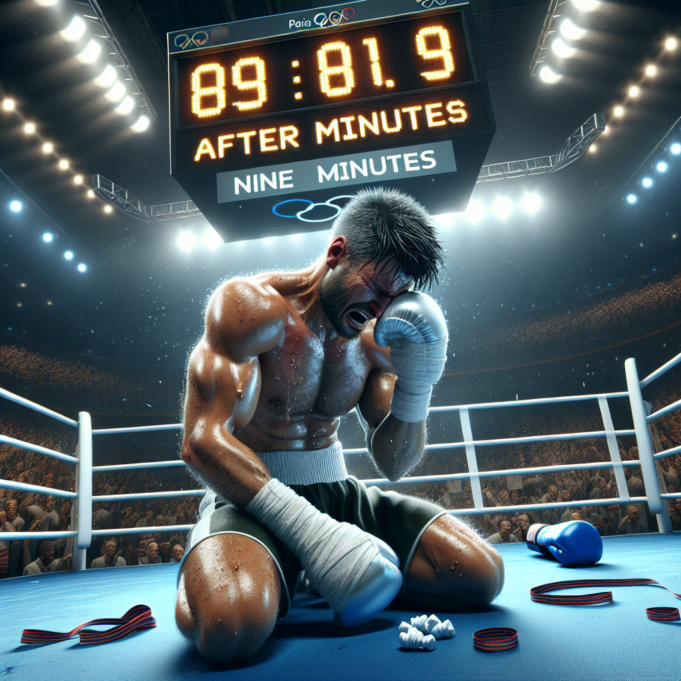There was boxer Harry Garside, seated and in tears, rendered speechless. One of the Olympic team’s most captivating figures, he is a hero to his fellow Australians, grappling with the loss of a lifelong aspiration. He appeared utterly heartbroken, completely isolated, sprawled on the ground behind the North Paris Arena.
The 27-year-old had just been defeated in the first round of the men’s 63.5kg boxing event. In just nine minutes, Garside’s dreams of gold came crashing down. Years of dedication spent in gyms, early mornings, nutritional guidance, mental coaching, and media engagements culminated in this moment. “As an athlete, you place immense pressure on yourself and for it all to end like this, yeah, I feel like a failure right now,” he expressed.
It must be noted that Garside is not a failure. He is an inspiration, someone whose candidness has sparked a more informed discussion about mental health in the country. He is a world-class athlete, resilient enough to confront detractors who may comment on his painted nails or his advocacy for the LGBTIQ+ community. He exists in the present, and that reality will persist.
Monday morning was just not his day. He stepped into the ring against Hungarian Richard Kovacs as the favorite and immediately aimed to take charge. His nimble stance, buoyed by ballet-trained footwork, propelled him towards his stockier opponent, eager to seize the initiative and command his fate. Yet, as Garside reflected later, “life is full of ups and downs.”
He understands this intimately. The Victorian experienced suicidal thoughts last year following an allegation of domestic violence, though he was later cleared. He has opened up about his troubled upbringing, battles with alcohol and drugs, his mother’s cancer diagnosis, self-doubt, and the struggle of discerning which thoughts to heed. “This was not how I envisioned things going. I could envision the gold medal in all my visualizations, and then everything derailed,” he admitted.
For Australian boxing’s celebrated performer, the manner of his exit was unexpected. Kovacs spent much of the match grinning and provoking, lowering his hands and beckoning Garside to come forward. The Hungarian’s antics were disrespectful yet fascinating, revealing the delicate psychology of boxing’s tactics. And ultimately, it paid off.
Garside won the first round, yet lost the second and third. He acknowledged that his opponent was more adept at making adjustments. “That showboating really worked in his favor as well,” the Australian reflected. “That’s not my style. No disrespect to him; he’s an exceptional athlete, but that’s just not how I approach boxing.”
He was candid in his self-evaluation, dismissing any idea that he might be overly critical of himself. “That’s how you become the best, right?,” he mentioned, sharing that he had intense self-loathing before the Tokyo Olympics.
“In the past three years, I’ve become my own ally. While it sounds great, I think I started getting a bit too lenient with myself. I now have a better relationship with myself, yet there’s still a tendency to be hard on myself, and I’m always striving to grow and evolve. However, I think I let myself off a bit too easily, which ultimately resulted in a first-round loss at the Olympic Games.”
after newsletter promotion
He remained there, solitary and contemplative, with his head down. Speaking softly, his eyes were heavy with fatigue.
“Tomorrow the sun will rise, and whatever may come, but I know these next few months will be challenging for me. I anticipate some dark moments, and to be honest, I’m genuinely terrified,” he confided, before drifting off, taking ten pained steps, then collapsing onto the frigid concrete floor.
In Australia, the crisis support service Lifeline can be reached at 13 11 14. Other international helplines can be located at befrienders.org. In the UK and Ireland, Samaritans can be contacted on freephone 116 123, or via email at jo@samaritans.org or jo@samaritans.ie. In the US, you can call or text the National Suicide Prevention Lifeline at 988, chat at 988lifeline.org, or text HOME to 741741 to connect with a crisis counselor.



































